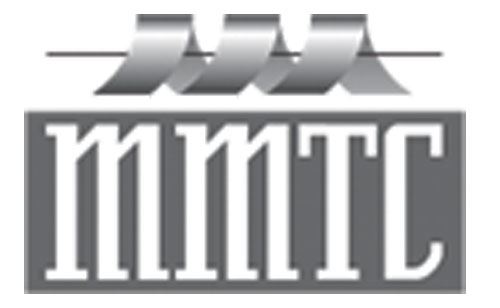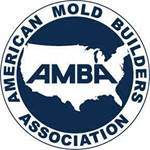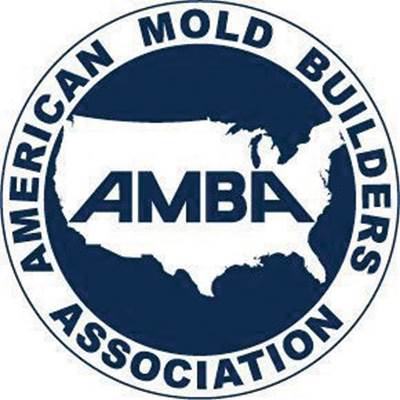Helping Shops Get from Quote to Cash Sooner
Manufacturers should be focusing less on how to reduce labor costs, and more on looking at how to take time out of the process.
Want to improve your shop’s performance? Call in the experts. Since 1991, the Michigan Manufacturing Technology Center (MMTC) has been working with small and medium-sized manufacturers, including moldmakers, to improve their competitiveness. The state-wide organization has about 50 employees and is headquartered in Plymouth, Michigan.
“Sometimes companies quote work, win the work, and then at the end of the year wonder why they made less money,” says MMTC Research Director Dan Luria. “A lot of companies still use quoting systems that simply apply a burden rate to the direct labor a job requires, and do not take into account how to allocate overhead costs to particular jobs. They end up winning jobs they can’t make money on, and they lose jobs that they’d really like to get.”
That disconnect doesn’t just hurt the company that takes the job; it hurts the company that would have been perfect for the job, but didn’t get it.
Luria points to two dominant challenges for small and medium-sized mold shops. First, they must be able to achieve the speed and “leanness” required to remain cost competitive; second, shops must be able to accurately determine their real costs so they can quote jobs correctly. “That combination of being fast and having the right quotes is the key to success,” he says.
That’s where the MMTC comes in. The organization works with shops to develop what Luria calls an “activity-based” approach to costs. They examine costs in all areas of work—engineering, shipping, quality control—and determine to which jobs the company should assign these costs.
“It can be an eye-opener,” Luria says. “Shops often don’t distinguish between jobs that run well versus jobs that run poorly. Ten percent of your jobs may be responsible for 40 percent of your engineering costs; if you quote those different jobs the same way, you’re going to lose money. You need to quote high-cost jobs higher—you may not win them, but not winning jobs you lose money on is a good thing. The activity-based approach is the key to making money.”
Lowering costs is also critical. “But there is no direct way to attack costs in a mold shop; you need to use time as a proxy for cost,” explains Luria. “Let’s say we have a $20,000 tool, and a shop rate around $100/hour. That tool should take roughly 200 hours to make; for a one-shift operation, that’s five 40-hour weeks. Yet if you look at the quoted leadtime on that tool, it’s often six or nine months. Why?”
Part of the problem is a too-traditional view of resources, Luria says. “We used to think of the machine as being ‘free,’ with the only scarce resource being key people. But today, it makes more business sense to schedule key machines—which are typically going to be the more expensive 4- and 5-axis CNC machines—and then figure out a schedule and staffing plan to maintain high utilization of those machines.”
This is another aspect of the fact that shops often don’t account for indirect business functions, Luria says. “We’re very good at measuring those 200 hours that the machines have to run, but we’re not thinking about scheduling that job all the way from quote to cash. A lot of mold shops tell us, ‘We don’t make any money machining the tool, but we’re making a lot of money on engineering and on engineering changes.’ That’s a bizarre approach—it essentially says that efficiency doesn’t matter.”
As a state and federally funded organization, MMTC’s goal is to help companies develop competitive approaches through knowledge transfer—not by becoming a permanent consultant. “We work with shops that have not been exposed to the application of lean techniques or to activity-based costing, and train them to do those things. Then we move on.
Luria shares one final piece of advice. “Manufacturers should be focusing less on how to reduce labor costs, and more on looking at how to take time out of the process. More of that time is probably going to be because of the office than the shop. If you successfully attack time, the money will take care of itself.”
For More Information:
Michigan Manufacturing Technology Center (MMTC)
(888) 414 – 6682
dluria@mmtc.org
mmtc.org
Related Content
The Critical Role of Management Representatives in ISO 9001
In ISO 9001 quality management systems, the Management Representative (MR) plays a crucial role. While the 2015 version of ISO 9001 no longer mandates this position, having a trusted management member serve as an MR remains vital for streamlining operations and maintaining quality standards.
Read MoreHow to Improve Your Current Efficiency Rate
An alternative approach to taking on more EDM-intensive work when technology and personnel investment is not an option.
Read MoreMaking Mentoring Work | MMT Chat Part 2
Three of the TK Mold and Engineering team in Romeo, Michigan join me for Part 2 of this MMT Chat on mentorship by sharing how the AMBA’s Meet a Mentor Program works, lessons learned (and applied) and the way your shop can join this effort.
Read MoreSteps for Determining Better Mold Prices
Improving your mold pricing requires a deeper understanding of your business.
Read MoreRead Next
The American Mold Builder’s Association: Rebranding and Building Value
The hope is that its members are able to reach out to the association on almost any issue related to the industry—whether it is operational, financial or technical.
Read MoreAre You a Moldmaker Considering 3D Printing? Consider the 3D Printing Workshop at NPE2024
Presentations will cover 3D printing for mold tooling, material innovation, product development, bridge production and full-scale, high-volume additive manufacturing.
Read MoreHow to Use Strategic Planning Tools, Data to Manage the Human Side of Business
Q&A with Marion Wells, MMT EAB member and founder of Human Asset Management.
Read More























